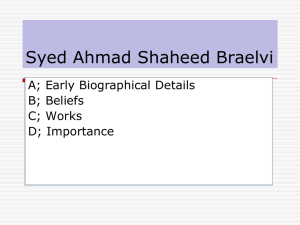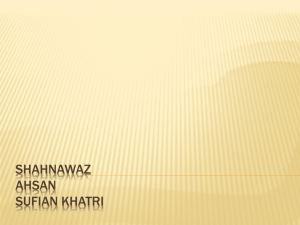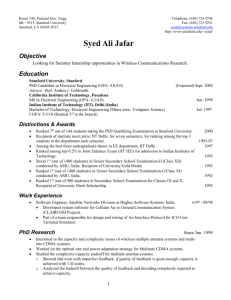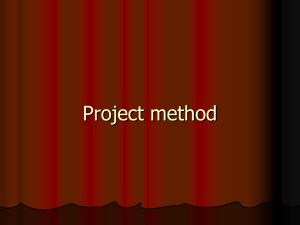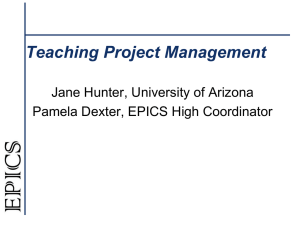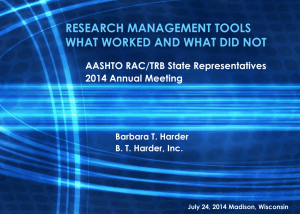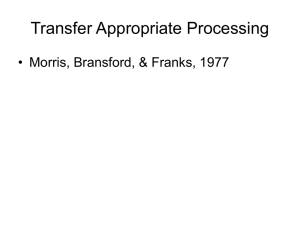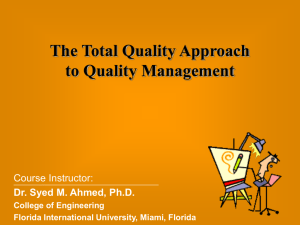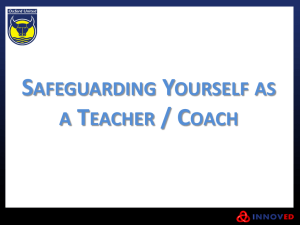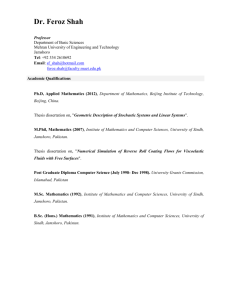Purposeful practice
advertisement
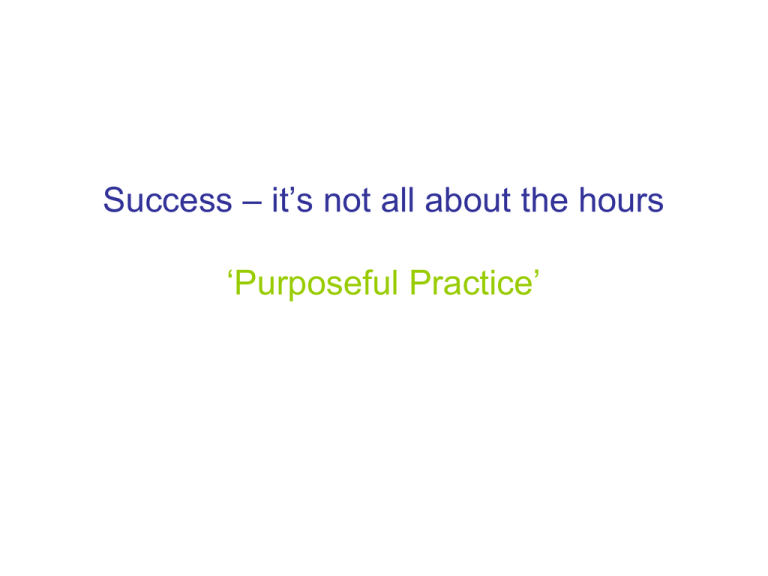
Success – it’s not all about the hours ‘Purposeful Practice’ Is 10,000 hours enough? • Many people drive every day, every week, every month - for years. • Most people clock up at least 10,000 hours of driving yet rarely do we end up excellent drivers. • The key to success is NOT just the NUMBER of hours but WHAT WE DO in those hours. A case study UK National table tennis champion, Matthew Syed Matthew Syed in his book 'Bounce' describes being coached by a world famous Chinese player The first day of coaching revealed why the Chinese dominate the world of table tennis. A case study Chen Xinhua, the new coach, presented Syed with far more challenge in his training eg did not train with a single ball back and forth, instead a bucket of balls were spread on the table and fired at him quickly and at different angles and speeds Incidentally this example is also about seizing opportunity. The Chinese coach had married a women from Yorkshire and so moved to the UK and Syed asked Chen Xinhua to be his coach. Purposeful Practice Chen Xinhua made Syed's side of the table wider so he had to run more, stretch more and be even quicker. Syed claims that the training was much harder than he had been used to and so he made more progress than ever before. With even more challenging hours spent practising, Syed progressed more and his world rankings increased. Case study • Serena and Venus Williams - the famous sister tennis champions - were trained with challenge. • Their father would get them to train to hit a ball with a baseball bat rather than a racket. • The sisters would aim their serves at traffic cones, not just a large area of the court. • Training was made up of challenge ie purposeful practice. A case study • Ericsson's study of violinists revealed that as well as 10,000 hours spent practising, the top violinists introduced harder pieces and pushed themselves harder in practice sessions than other (very talented) violinists. Source: Malcolm Gladwell, Outliers: the story of success (2008) You and your learning • Do you choose easier tasks than harder ones, when given the choice? • Which choice will help you learn most? • Do you persevere at hard tasks / ask for help immediately / give up? • Which choice will help you learn more? What you need to do • Use past questions to find out both easy and hard questions. • Use mark schemes to find out how you reach the top mark band. • Use examiner comments to help tackle hard questions. • Plan answers to hard questions. Make your practice purposeful What you need to do • Read and re-read material that you find hard - don't give up after the first read. • Think differently about hard tasks - relish them, know that without them you will not progress as much. • When given options to choose tasks that help you progress avoid the easier choices- even though you might achieve lower marks, initially, on harder tasks - in the long run you will learn more. What have you learned? • Summarise what you have learned from this presentation on purposeful practice.
